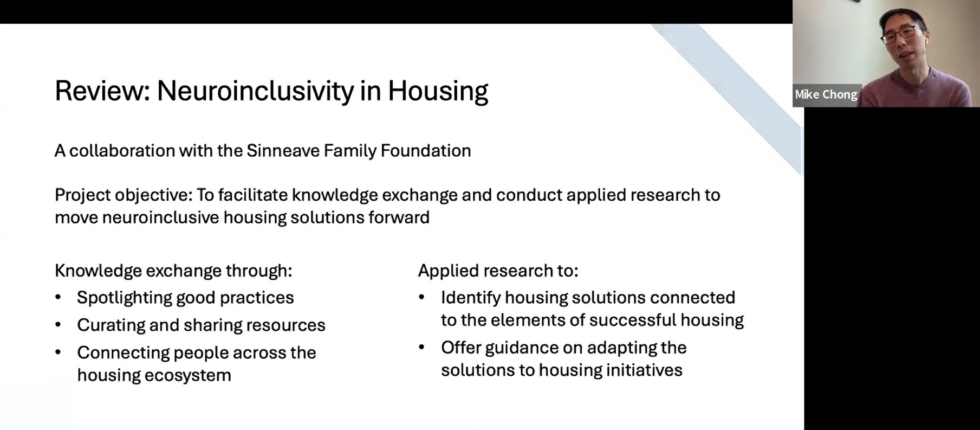Part 3: Enhancing Neuroinclusivity in Housing: Reflection, Ideation, Advocacy
Join us for an insightful 3 part series on bringing neuroinclusivity to housing!
In part 3, we will explore scenarios and invite attendees to reflect and ideate on solutions and strategies that have potential to work within their own housing setting. Resources and strategies from lived experience and research will be shared. Participants will be encouraged to plan to advocate for enhanced inclusivity in their networks and contribute to broader conversations about neuroinclusive housing.
Who should attend?
- Non-Profit Housing Providers
- Service Providers
- Community Members
- Policy, Government, City Planning Representatives
- Advocates
What will you learn?
- By the end of all 3 sessions, participants will be better equipped in supporting neurodivergent people, and people with other diverse needs within the context of non-profit housing in BC.
- By the end of part 3, attendees will reflect and identify strategies, pockets of hope, and ways in which neuroinclusive housing can be fostered in Canada.
- Participants will be prepared to advocate for neuroinclusive housing in their own networks and more broadly in Canada.
Facilitated by
Margaret Janse van Rensburg
Community Outreach Liaison
Neuroinclusivity in Housing, Accessibility Institute, Carleton University
Margaret is the Community Outreach Liaison for Neuroinclusivity in Housing at Carleton University. She is also a PhD candidate in Social Work at Carleton University and a Registered Social Worker with the Ontario College of Social Workers and Social Service Workers. Most of her work has been interested in supporting Autistic adult mental health, wellbeing, and inclusion and taking a neurodivergent lens to research and practice.
Her dissertation investigates practitioners’ and professionals’ barriers to and facilitators of providing Autistic adults with mental health support. As a neurodivergent individual with who has struggled with her own mental health, she hopes to help those who support women and Autistic people through individual, organizational, and systemic changes and solutions.
Mike Chong
Knowledge Mobilization Lead
Neuroinclusivity in Housing, Accessibility Institute, Carleton University
Mike is the Knowledge Mobilization Lead for Neuroinclusivity in Housing at Carleton University where he focuses on the sharing of knowledge and good practices in neuroinclusive housing with the broad housing ecosystem. Before joining Carleton, he obtained a PhD from Memorial University focused on Health Professional Education. He continues to teach in pharmacy programs, in areas of patient care, social justice, and knowledge translation.
